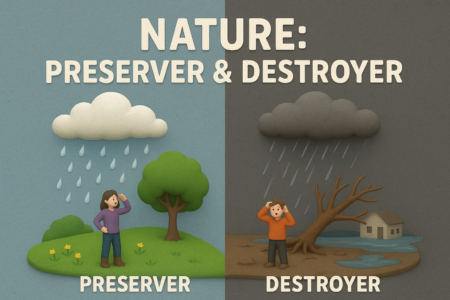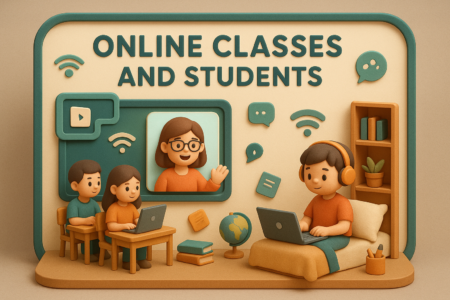Introduction
Beyond classrooms, effective communication is a vital life skill. It shapes personal relationships, career success, and social interactions. Mastering communication enables us to express ideas, collaborate, and navigate diverse situations. Join us as we explore its transformative power.
Understanding Different Forms of Communication
Communication comes in various forms, each with its own nuances and applications. Let’s explore three main forms: verbal, non-verbal, and written communication.
1. Verbal Communication:
This involves the use of spoken words to convey messages. It’s essential in everyday conversations, presentations, and public speaking events. The tone, pitch, and volume of our voice can greatly impact how our message is received.
2. Non-verbal Communication:
Sometimes, our body language speaks louder than words. Non-verbal cues like facial expressions, gestures, and posture play a significant role in conveying emotions and intentions. For instance, a smile can signal friendliness, while crossed arms might indicate defensiveness.
3. Written Communication:
The written word carries its own weight, whether it’s in emails, text messages, or formal letters. Clear and concise writing is crucial for effective communication, especially in professional settings. Grammar, punctuation, and tone all influence the clarity and impact of written messages.
Building Strong Interpersonal Relationships
Effective communication is the cornerstone of successful relationships. It’s like the glue that binds people together, fostering trust, understanding, and connection. Let’s delve into some practical tips for enhancing communication in your interpersonal relationships:
1. Active Listening:
Truly listening to others shows that you value their thoughts and feelings. Practice active listening by giving your full attention, maintaining eye contact, and nodding to show understanding.
2. Empathy:
Put yourself in the other person’s shoes to understand their perspective and feelings. Show empathy by acknowledging their emotions and offering support and encouragement.
3. Conflict Resolution:
Conflicts are inevitable in any relationship, but how you handle them can make all the difference. Use clear and respectful communication to address issues, focusing on finding solutions rather than placing blame.
Case Study:
Sarah and Alex had been friends for years, but recently they had a disagreement that threatened to strain their relationship. Instead of avoiding the issue, they decided to sit down and talk it out. By actively listening to each other’s perspectives and expressing empathy for how they felt, they were able to resolve the conflict and strengthen their bond even further.
Navigating Professional Settings
In the workplace, effective communication is like the secret sauce for success. Whether you’re chatting with colleagues, presenting to clients, or meeting with your boss, clear communication is key. Here are some tips to help you shine in professional settings:
1. Importance of Communication:
Communication is the glue that holds teams together and ensures everyone is on the same page. It’s crucial for sharing ideas, collaborating on projects, and resolving conflicts. Plus, it leaves a lasting impression on clients and supervisors.
2. Strategies for Clear Communication:
- Email Etiquette:
Write clear and concise emails, using proper grammar and punctuation. Be mindful of tone and avoid using all caps or excessive exclamation points. - Professional Presentations:
Prepare engaging presentations that convey your message effectively. Use visuals, like slides or graphics, to support your points and keep your audience engaged. - Effective Meetings:
Come prepared to meetings with an agenda and be an active participant. Listen attentively, ask questions, and contribute your ideas thoughtfully.
3. Enhancing Career Prospects:
Mastering communication skills can open doors to new opportunities and accelerate your career growth. Clear and confident communication can impress employers, build rapport with clients, and pave the way for promotions and advancements.
Enhancing Communication Skills in Academic Settings
Communication skills are vital not only in the workplace but also for academic achievement. Whether participating in class, presenting, or writing essays, effective communication is key. Here’s how to excel academically:
1. Role of Communication:
Communication skills help in discussions, presentations, and writing assignments, boosting academic performance.
2. Tips for Effective Communication:
- Active Listening:
Stay attentive, take notes, and engage with course material to understand better. - Asking Questions:
Don’t hesitate to seek clarification or express doubts. Asking questions shows engagement and aids understanding. - Engagement with Course Materials:
Stay organized, keep up with readings, and participate in study groups for better comprehension.
3. Resources for Improvement:
- Writing Centers:
Seek feedback and improve writing skills through writing centers. - Public Speaking Workshops:
Attend workshops to enhance presentation skills and boost confidence. - Online Tools:
Utilize grammar and writing assistance tools like Grammarly or Hemingway Editor.
Utilizing Communication in Personal Growth
Effective communication isn’t just about talking—it’s about understanding ourselves and growing personally. Here’s how it helps:
1. Self-Expression and Understanding:
Communication helps us express thoughts and emotions, fostering self-awareness. Try journaling to clarify thoughts and feelings.
2. Building Confidence:
Confident communication empowers us to assert ourselves. Practice speaking up in group settings or volunteering for presentations to boost confidence.
3. Assertiveness and Resilience:
Effective communication lets us assert boundaries and navigate challenges. Learn assertiveness techniques and practice mindfulness to build resilience.
Practical Exercises for Improvement:
- Role-playing: Practice communication scenarios with friends.
- Mindfulness: Reflect daily on communication experiences.
- Seek Feedback: Ask for input to identify areas for growth.
Overcoming Communication Barriers
Communication barriers can hinder understanding, but with the right strategies, we can conquer them:
1. Language Barriers:
Differences in language can create misunderstandings. To overcome this, use simple language, gestures, or visual aids to convey your message clearly. Be patient and willing to repeat or rephrase information as needed.
2. Cultural Differences:
Cultural norms and values influence communication styles. Respect and curiosity are key. Take the time to learn about other cultures, ask questions, and adapt your communication approach accordingly.
3. Emotional Obstacles:
Strong emotions like fear, anger, or anxiety can hinder effective communication. Practice active listening, which involves giving your full attention to the speaker, acknowledging their emotions, and responding empathetically.
Real-Life Examples:
- Jane: Despite not speaking the same language as her classmates, Jane used gestures and drawings to communicate effectively and collaborate on group projects.
- Carlos: By embracing cultural differences and actively seeking to understand his colleagues’ perspectives, Carlos built strong relationships and successfully led diverse teams.
Conclusion
Effective communication is key in personal relationships, professional success, academic achievement, and personal growth. Prioritizing and continuously developing communication skills is crucial for navigating life’s challenges and seizing opportunities. Let’s embrace effective communication for our well-being and success.







